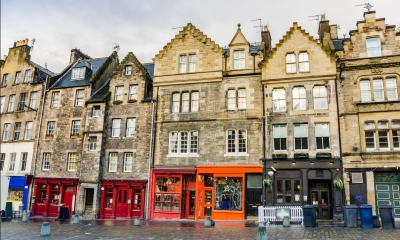
The following is an outline of some of the areas where legislation may apply to your business. You should obtain guidance on what legislation applies to your particular type of retail business.
What licences does a retail based business need?
Licensing requirements for your business will depend very much on what type of retail business you have in mind. For example, if your business will deal in food you will need to register with your local environmental health department. If you plan to sell alcohol you will need to be appropriately licensed by the local authority. However, very many retail businesses aren't required to get any licences at all.
Your local authority will be able to give you information about any licences you might need. Trade associations can be a good source of help and advice too.
Also bear in mind that if you:
- plan to play background music in your premises you'll probably need to get a Music Licence from PPL PRS Ltd for which you'll have to pay an annual fee
- offer credit facilities to your retail customers then you'll need consumer credit authorisation from the Financial Conduct Authority (FCA)
- keep computerised records of individuals' personal details and/or use CCTV you may be required to register as a data user with the Information Commissioner's Office (ICO)
- sell, advise on, arrange or assist in selling general insurance - even if insurance is only a small part of your business - you either need to be directly authorised and regulated by the FCA or become an appointed representative of an FCA-regulated principal (the more usual option for a retail business). Contact the FCA for further information
Licensing of second-hand dealers
Local authorities in Scotland require second-hand dealers to obtain a licence or registration to operate. This applies unless dealing in second-hand goods is only incidental to the main business activity. Elsewhere in the UK, some local authorities license or register businesses where second-hand dealing is the main or a significant part of the business and is not just incidental. However, certain specific exemptions generally apply - for example jewellers. Businesses which hold consumer credit authorisation are normally also exempt. If you are in any doubt as to whether second-hand dealer licensing may apply to your business, contact your local authority trading standards department for guidance.
Alcohol retailing
It is against the law to sell alcohol to people aged under 18. Unfortunately, plenty of under-18s try to buy alcohol so you'll need to be vigilant to make sure that you and your staff stick to the law. Identification schemes like Challenge 21, Challenge 25, PASS and CitizenCard can help you to do this effectively.
Tobacco products
You must not sell tobacco products to people aged under 18. You must also make sure that all tobacco products you sell carry a UK duty paid fiscal mark. Regulations prohibit point-of-sale tobacco displays and advertising. You can get more information on tobacco legislation from your local trading standards department.
Other age-restricted items
As well as alcohol and tobacco, there are several other types of products that you can only sell to people over a certain age. These include fireworks, knives, aerosol spray paints and video games. Contact your local trading standards department for more information.
Website information
If you use a website to advertise your business or sell your goods you must include certain information on the website and in any business emails that you send. The website must clearly display the company registration number, place of registration and registered office address. This information should also appear on order forms and in emails. You also need to be aware of the rules covering the use of 'cookies'.
Retailing
There is a wide range of legislation that applies to retail outlets and that protects the interests of the consumer. For example, goods and services must not be misleadingly described and the retail price of goods must be clearly displayed. You will be responsible for making sure that all goods or services are fit for their intended purpose and of satisfactory quality. There's also separate legislation that covers online selling and sales that you make away from your business premises. Visit the Trading Standards Business Companion website for more information.
Under regulations which cover customer disputes and resolution, you'll need to be able to give your customers details of a certified 'alternative dispute resolution' provider for your industry sector. And you'll need to inform them about whether or not you intend to use that provider in the event of a dispute.
Food safety
All businesses in the food sector must comply with strict food safety legislation. Before you open, you must register your business with the local authority environmental health department. Your local environmental health officer will be able to give you advice and guidance as to what you should install in your premises to make sure your operating areas are hygienic and how to comply with the requirements of the Food Safety Act.
Substances that could be used to make explosives
There are special regulations in place to prevent substances that could potentially be used to make explosives getting into the wrong hands. Some substances, which would normally only be available from specialist suppliers, are regulated and can only be supplied to a member of the public who has a licence to obtain and possess them. Other substances, although not regulated, are nevertheless of potential concern. These are referred to as 'reportable substances'. Any products labelled with the 'skull and crossbones' hazard pictogram are also potentially of concern, although they are not classified as reportable under the regulations.
You must report any suspicious transactions (or disappearances due to theft) involving regulated or reportable substances to the police Anti-terrorist Hotline on 0800 789 321. A transaction could be suspicious for various reasons, for example because the customer insists on paying cash and/or wants an unusually large quantity of a product containing a reportable substance.
There's more information for businesses about regulated and reportable substances on the Gov.uk website.
Waste batteries
If your business sells more than 32 kg of portable batteries in a year you must take back used batteries from customers to be recycled. You must provide this service free of charge. DEFRA has produced a calculator tool to help businesses work out whether they sell enough batteries each year to be affected by the new regulations. You can use the tool on the Waste Support website.
Carrier bag charge
A minimum 10p charge applies for single-use carrier bags in England (other rules apply in Wales, Scotland and Northern Ireland). You can get detailed guidance from the GOV.UK website.
Health & Safety, fire
You must comply with workplace health and safety and fire safety legislation.
Employment legislation
Anyone employing staff must comply with employment legislation. Important areas of legislation include recruitment, employment contracts, pay, working hours, holidays, employment policies, sickness, maternity, paternity, discrimination, discipline, grievances, dismissals, redundancies and employment tribunals.
Insurance for a retail based business
Contact an insurer or insurance broker and explain exactly how your business will operate - they will then explain what insurance cover you must have by law, and other cover you should consider. This might include:
- premises, premises contents and stock
- goods in transit (for example on the way back from a cash and carry)
- freezer breakdown
- cash and Lottery scratchcards
- business interruption
- employers liability
- public and products liability
- motor insurance (for delivery vehicles)
It is worth noting that some trade associations and buying groups offer their members special insurance policies, which might save you money and provide the level of cover you need.



